This is for @simplymike's Hive Community Garden Journal challenge.
You might remember last time that I was struggling with some nasty soil with a nasty invasive weed... I also was running out of time for putting plants in before they'd die in their pots... Here's what grew in June.
I'll start with the experimental beds which were looking so much better than the conventional ones at the end of May...
This is the bed that I built on top of the ground with a newspaper lining, then alfalfa, then manure/compost.
We've had a poor germination rate which may have been partly due to whatever was digging in the bed early on. What has grown, however, has done fairly well. This corn is so much taller than everything else in the garden so far, with probably only about a week head start on the others.
I had been worried about weeds since I was planting on top of a bale of alfalfa hay, but that hasn't really been a problem. This bed is moist compared to the others as well.
Something has munched on the lavender plant in the middle, but it seems to be doing okay.
Next, we have the fennel, planted in a lazy bed on top of the bad soil. It's doing pretty well. Looks like I have a bronze fennel. (I didn't care which color, I was so happy to find it!) No sign of the seeds I planted around it though. (More fennel, including bulb fennel.)
The potatoes are in another similar lazy bed - and are extremely happy. So far, I've seen no sign of the other potatoes I planted in another (conventional) bed - and it takes a lot to kill off potatoes!
The strawberries are doing okay, though have stalled - and something seems to have eaten one of the plants. Again, another lazy bed.
As for the REST of the garden...
The corn has germinated well, but is struggling. I have some beans coming up and some sunflowers (being eaten by something) and the curcurbits (squashes/melons) are doing fairly well.
There's clearly something wrong with this soil though - in addition to the wild geraniums which seem to be everywhere.
More corn poking up between the wild geraniums.
Miraculously, these two brussels sprouts plants seem to be doing quite well... unlike the rosemary behind them.
I guess some of the scratch feed for the chickens sprouted... this bed seems to be invaded with (probably) wheat and other grains. This pumpkin doesn't seem too bothered by its neighbors though.
My cabbages are doing surprisingly well. The sage in the middle is okay, but we'll see. The intercrops seem to have failed completely.
I have seen a cabbage white butterfly around though, so I need to watch for caterpillars... (the chickens will like those.)
The artichokes really got to a late start and nearly died when I first transplanted them. They're doing okay now, but are unlikely to fruit before frost, sadly.
The tomato plants that I nursed through the winter are doing okay, but not really thriving. I should be able to take starts in the fall again, but the poor soil is really taking its toll.
Sadly, it's been a bit of a disappointment this year. The soil is simply too poor to grow anything in without considerable work (which will come this fall.) Most of the purchased plants that went in there died within the first few days. (Except the cabbages and brussels sprouts and some of the herbs.)
I actually have to wonder whether there's something wrong with the soil more than what would be expected in our sandy clay soils, whether the cheatgrass has left a legacy behind (that is being fed to the chickens with every chance.)
I do feel that the experiment with the easy-style raised beds has been a success and definitely worth continuing in the future even if I fall behind schedule. In hindsight, I should have kept up with the "lazy" beds, at the very least despite the expense of buying bag after bag of compost/manure.
After the new chicken coop has been built (the Maran has started crowing), I will start on the frames for next year's beds - they don't have to be tall, I don't think - just enough so that I know where to heap the leaves and horse manure I plan to add in the fall.
Photos taken in June 2020 with my Nikon D7200.

Past issues...
Poultry
Chickens - A Little About Our Breeds
Chick Update and the new Warming Plate
Chickens Grow Quickly
Building our Chicken Tractor
Reinforcing our Chicken Tractor
The Circle of Life
Gardening in Wyoming
Indoor Gardening

Lori Svensen
author/designer at A'mara Books
photographer/graphic artist for Viking Visual
(Buy my work at RedBubble, TeePublic, PicFair and DeviantArt.)
verified author on Goodreads
(Buy my books at Books2Read and at LBRY)
find me on Twitter


Join The Best Natural Health Community on Hive



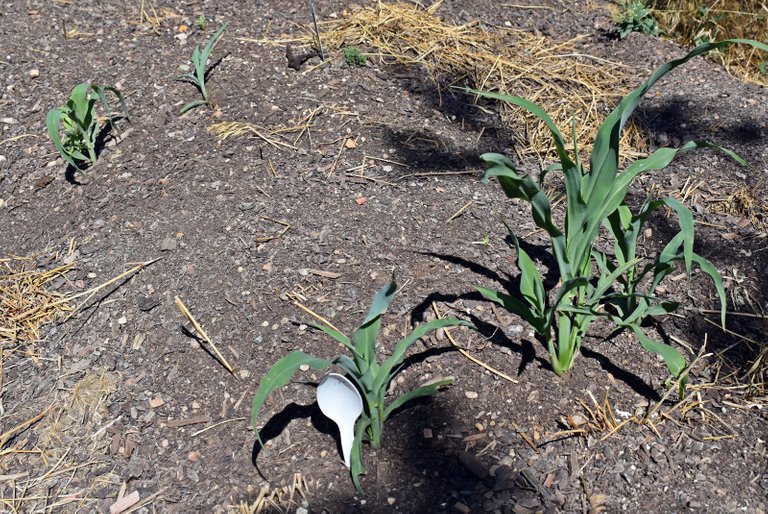
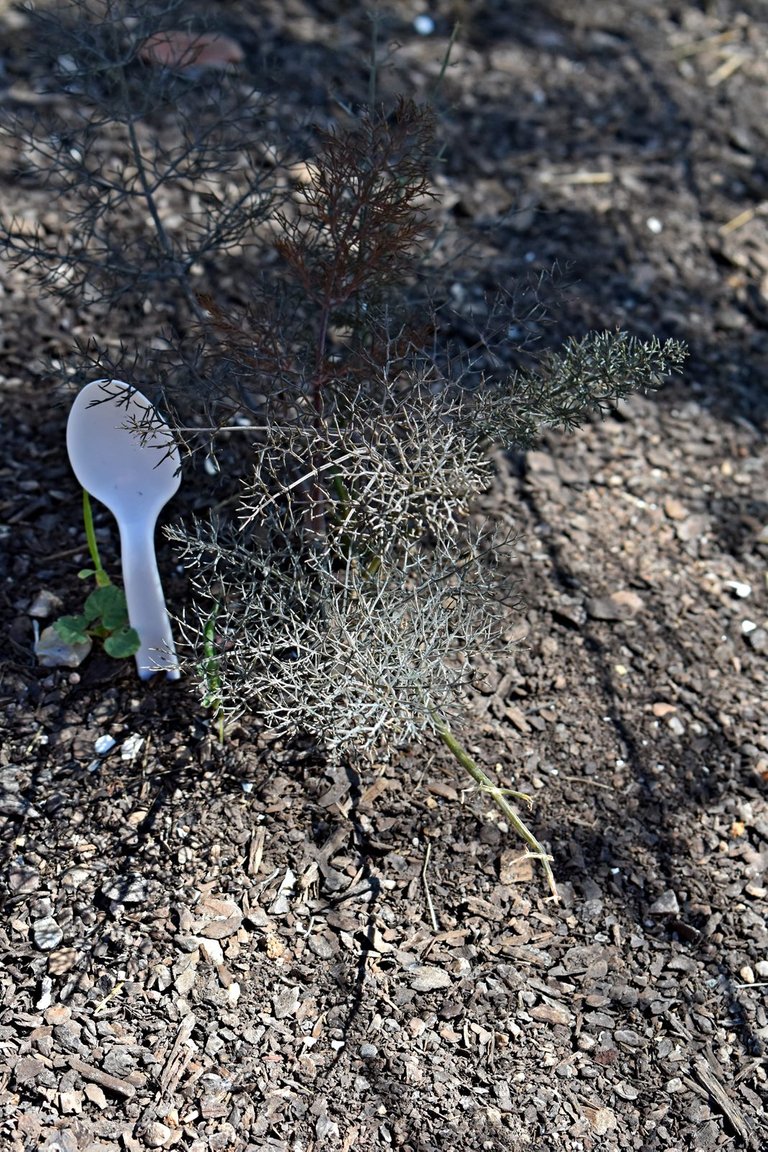
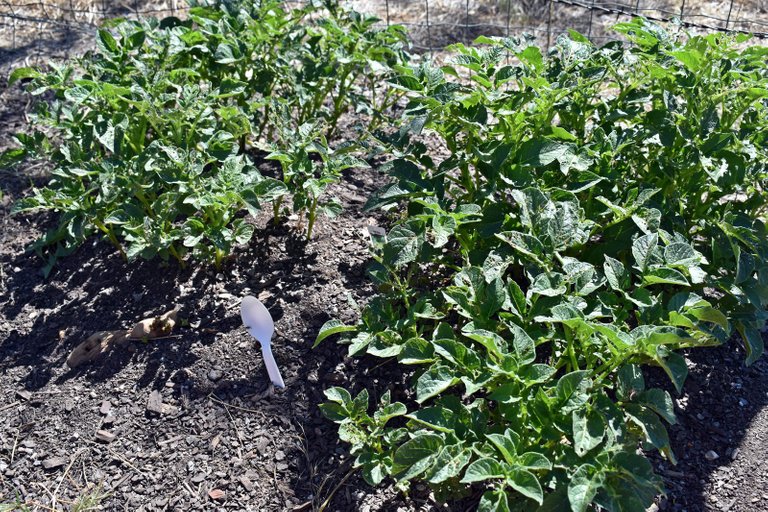
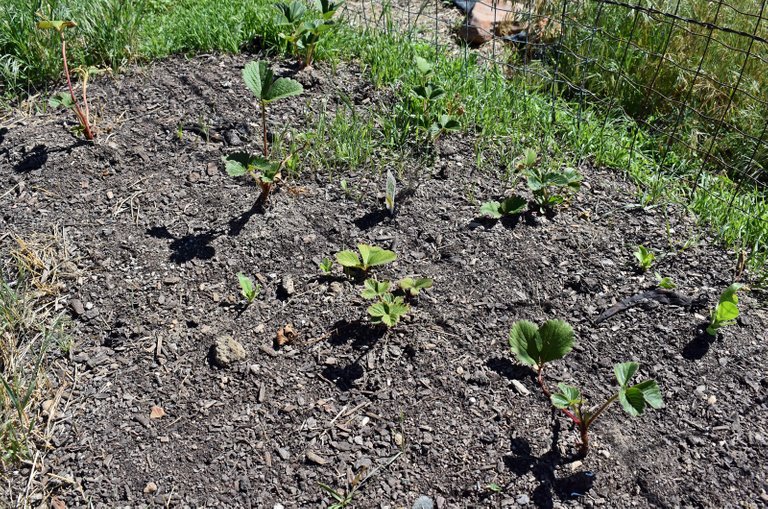
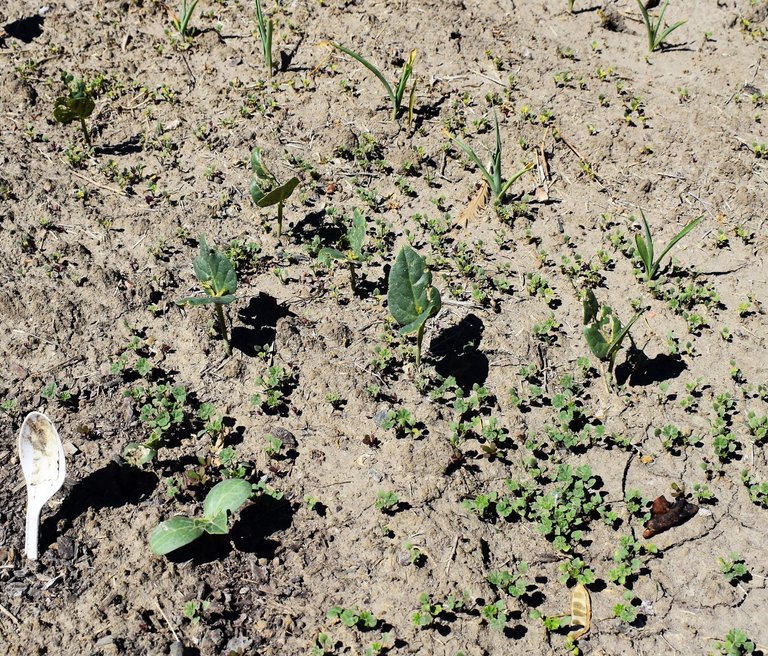
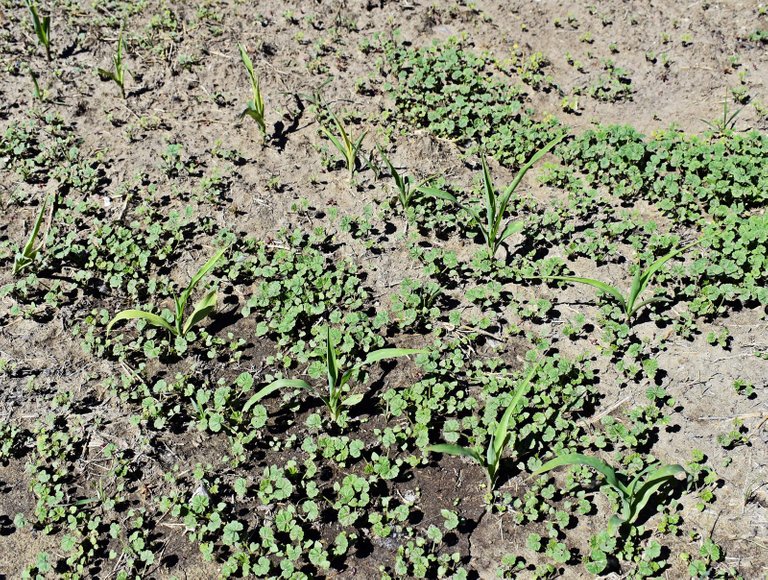
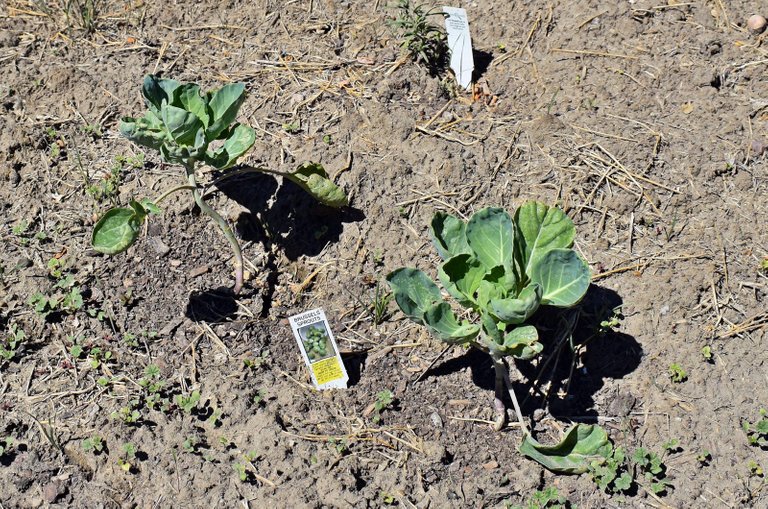
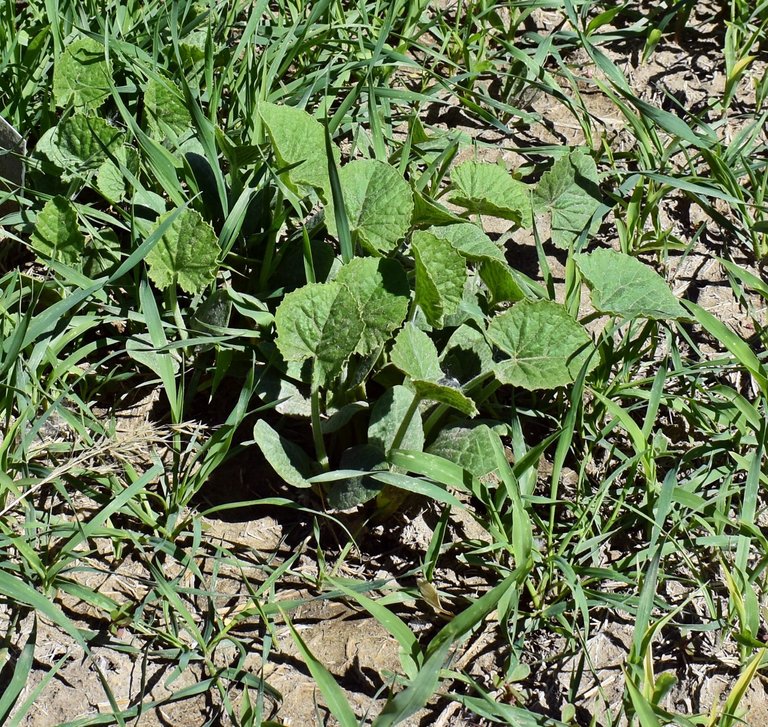
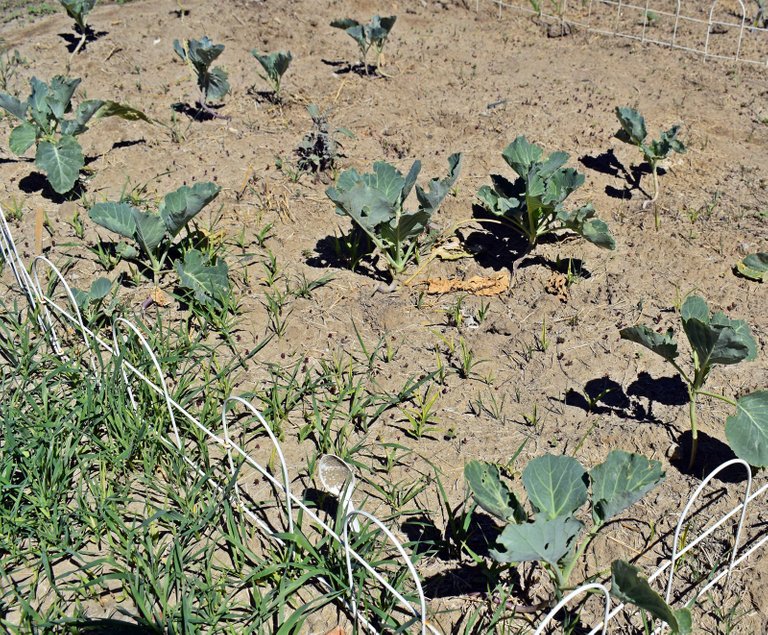
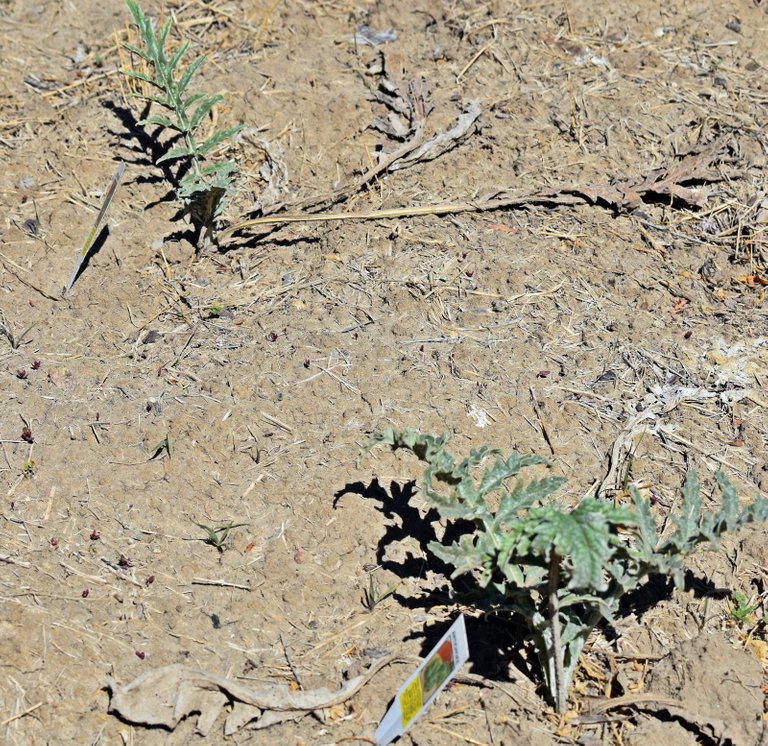
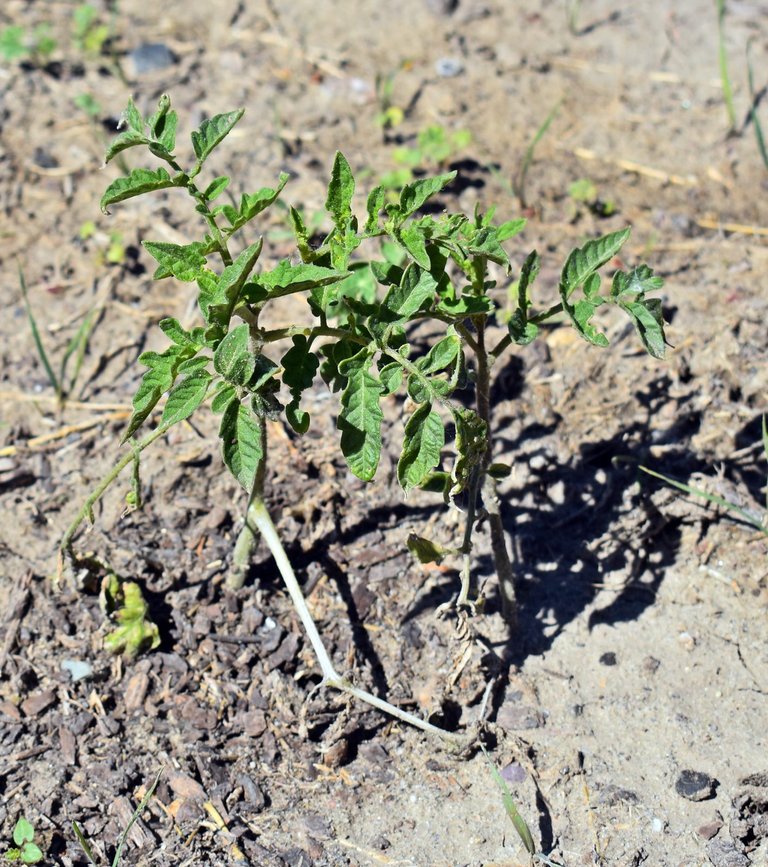

I've got so much to learn about gardening. 🤣😂 so far my skills have been limited to removing dead twigs & plants 😂🤣
Hahahaha - well, that's a place to start!
I knew that our soil was going to be a challenge, but I'd been assured that this garden space had had a lot of additions made to it over the years - and despite the years of it sitting fallow with cheatgrass growing unabated, grazed/fertilized by the deer - I had reason to hope it might be better than it's turned out to be...
There's also the possibility of severe imbalance. A decent soil test though Logan Labs would tell you...
Very possibly.
I'll see if I can get soil tests done through our extension office - they'll know which ones are most useful in our area anyway. I expect most of the problems are "normal in our area" problems. Regardless, adding plenty of organic matter should help.
I would counsel against the extension. They merely do the NPK and a couple others. From the looks of things, it looks like the imbalance is more severe. That's why I suggested Logan Labs. They are more expensive, but it really does pay off in the long run.
I've done extensive posts on balancing soil. If you are interested, I can repost the links.
Logan Labs is going to get expensive quickly and this plot isn't even ours... so then I'd have to do it again when we move...
Let me explain the situation here in central Wyoming.
We don't have lovely loam soils here. They don't exist. (The closest good soil is 2 hours away.) The nice areas here have sandy clay. The bad areas are not even worth trying to garden on.
Our soils are on the edge of an alkali flat. It's not good soil, it's not a gardener's friend. This is true for our whole area. People have spent loads trying to remediate the soil in our area - to no real gain. I even asked at the extension office and the guy was very pessimistic about growing anything in the soils around here.
The answer appears to be to grow on top of the soil rather than spend loads and loads trying to remediate something that isn't going to be fixed.
Why spend hundreds of dollars we don't have on extensive testing (and then do it again when we move) when I can spend the money on building raised beds (simple frames that can be moved is all I'm talking about at the moment) and trying to put some organic matter into this soil?
I'm not going to give up - I will work with the soil, as well as on top of it... but I wanted you to understand that it's not a simple balancing act here, but something far more difficult that even the experts are struggling with.
How many gardens do you have? I have 3/4 of an acre, in 3 large gardens and it costs me $90/year for testing. it's been worth its weight in gold, to have the tests and amend exactly what is needed.
But if the soils are that bad out there and the land is not yours, then perhaps raised beds is the answer. It really limits how much you can plant though...
By alkali, do you mean you have real high calcium? This is outside my experience, as calcium is not an excess here...
Alkali flats are what's left after a lake evaporates or otherwise drains. It's salty and nasty. It's also strongly alkaline. That part is relatively easy to remedy compared to the salt and other toxins in the soil. The guy at the extension office was talking about how they had even done a study on how to remediate some of the worst of it... and nothing helped.
Actually, until I talked to him, I felt similar to yourself - that surely, there's something that can be done... I can work with the soil, rather than against it... Now, I'm not so sure.
Where it's not alkali, it's very sandy and doesn't hold water. Even with addition of organic matter, it doesn't keep the water very well. (That was also talking to a master gardener in our area.)
So, yeah, I think raised beds (along the lines of hugulkultur) will be key. I was never intending to do a market garden anyway - just enough for ourselves and maybe a little to barter.
We have exactly 1 garden (currently 12 beds including
the one I have the fennel in) and again not our land... maybe we'll inherit it, but maybe not, we don't know at this time.
If all the beds have been used the same way, and were created in roughly the same time, you might be able to do just 1 test.....
I know about how sand holds organic matter. This sandy loam I have here will release the organic matter really quickly if I don't keep it covered. I have what was a top soil pile for re-making the flowerbeds, and it's been sitting a year now. It looks like subsoil....
Very cool crops!
I love the smell of fennel but my attempt to plant it failed miserably... I don't get how those things pop up naturally on the side of the roads and grow immensely without anyone taking care of them but when I plant it and water it everyday... it dies. 🤔
By the way, what's the deal with the spoons?
I love fennel too. When I lived in England, it grew so easily without any effort, very tall and beautiful. That's why I was so excited when I saw it here. Maybe you were trying too hard???
Also, I learned that fennel isn't friends with any garden vegetable or herb, so maybe it didn't like its neighbors.
The spoons were meant to work as plot markers, but the Sharpie washed off too quickly... so much for permanent, eh? I'll try nail polish next year, that usually stays better.
That's weird... anyway, I think I'll have to wait another year. The fennel on the side of the road has lost its smell already... now they're huge and with flowers. No more of those bushes of green full of scent. 🙃
Congratulations @viking-ventures! You have completed the following achievement on the Hive blockchain and have been rewarded with new badge(s) :
You can view your badges on your board And compare to others on the Ranking
If you no longer want to receive notifications, reply to this comment with the word
STOPTo support your work, I also upvoted your post!
Support the HiveBuzz project. Vote for our proposal!